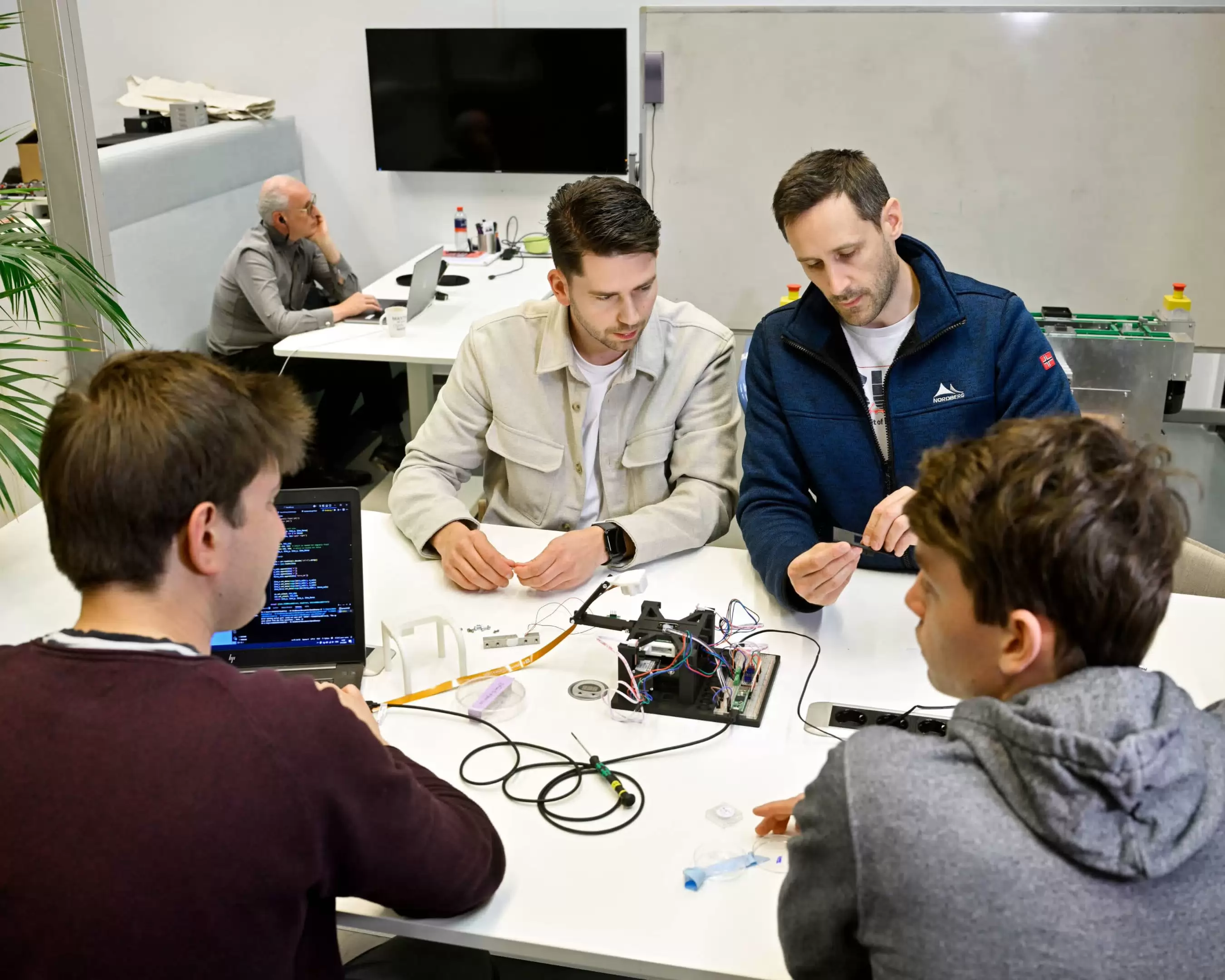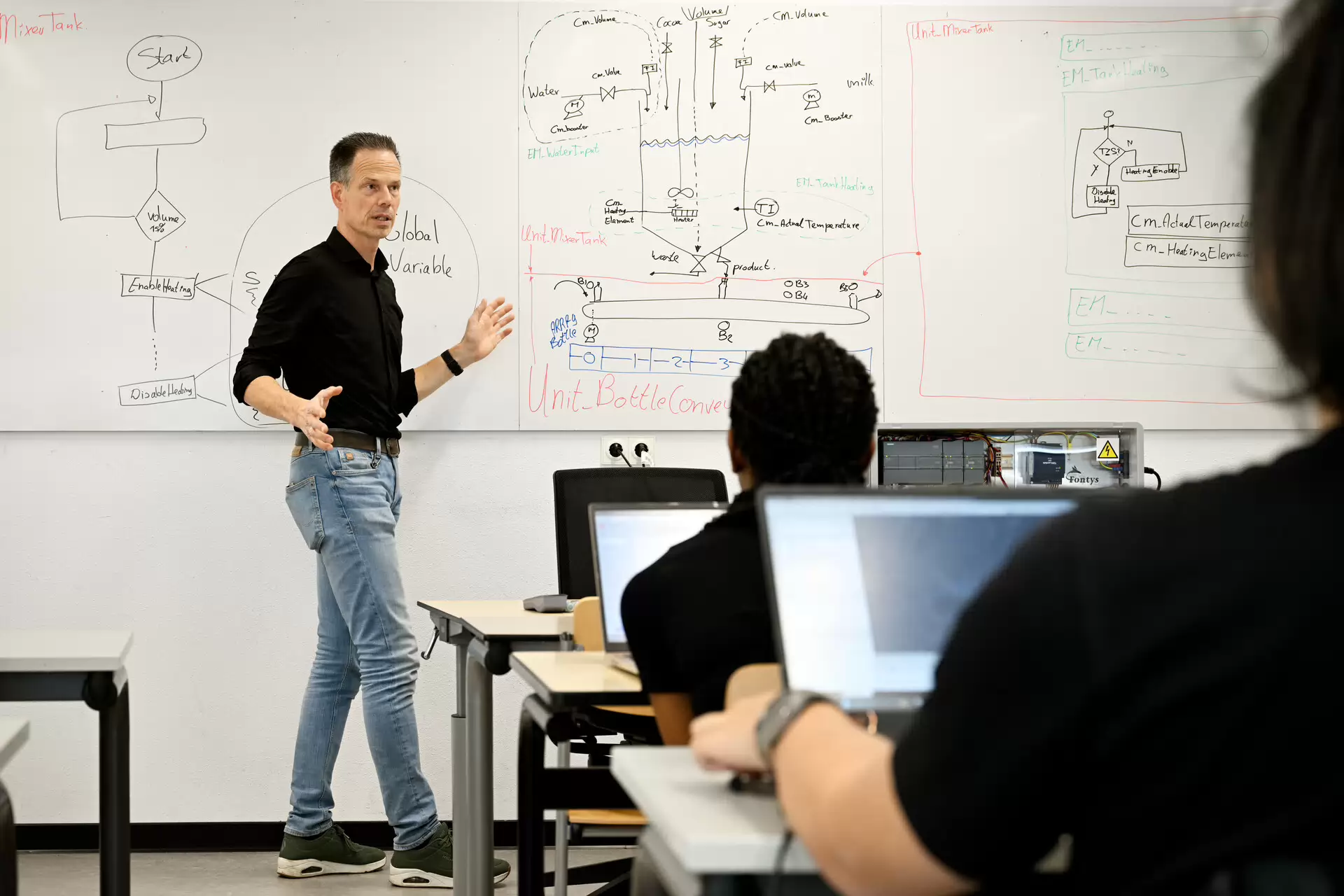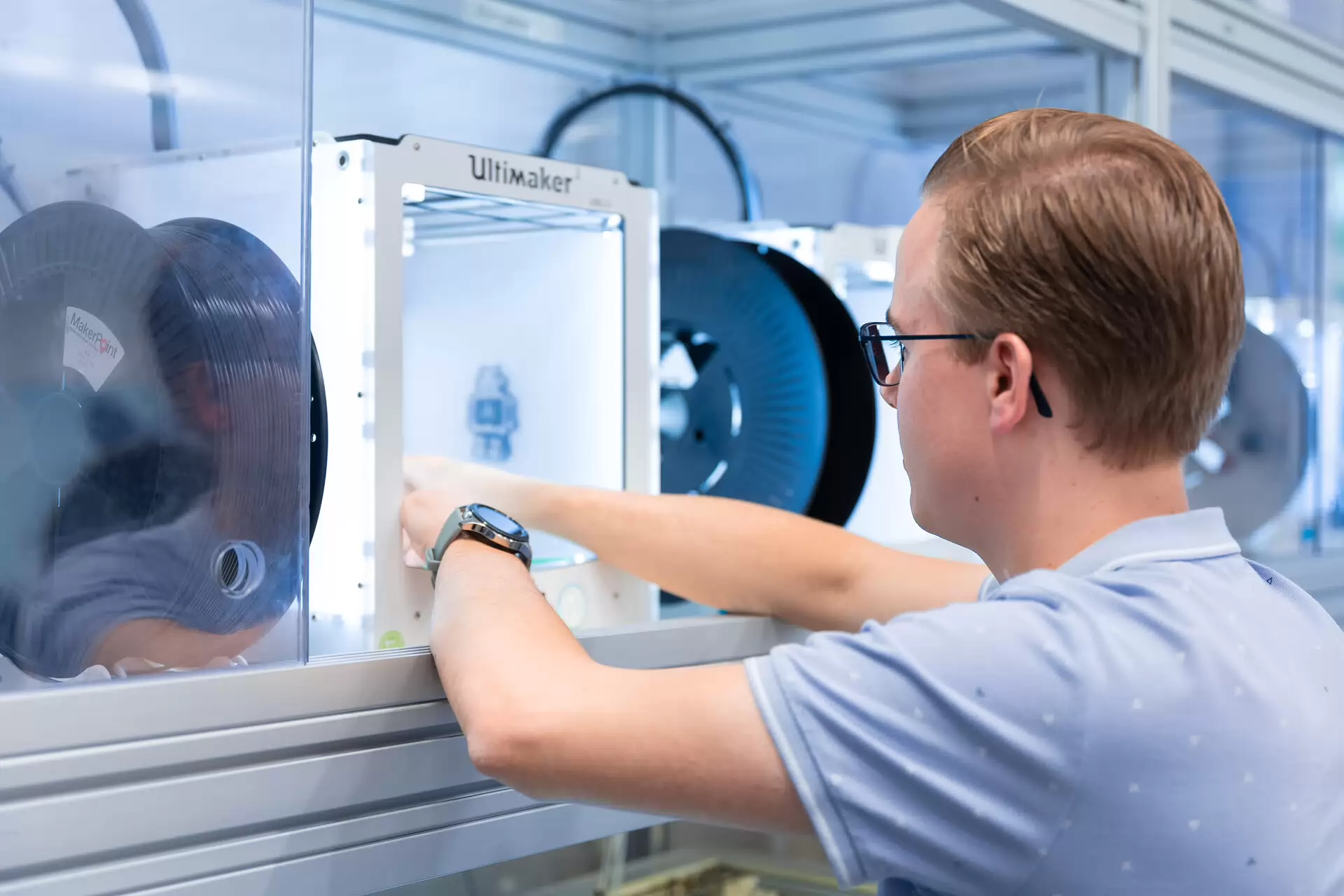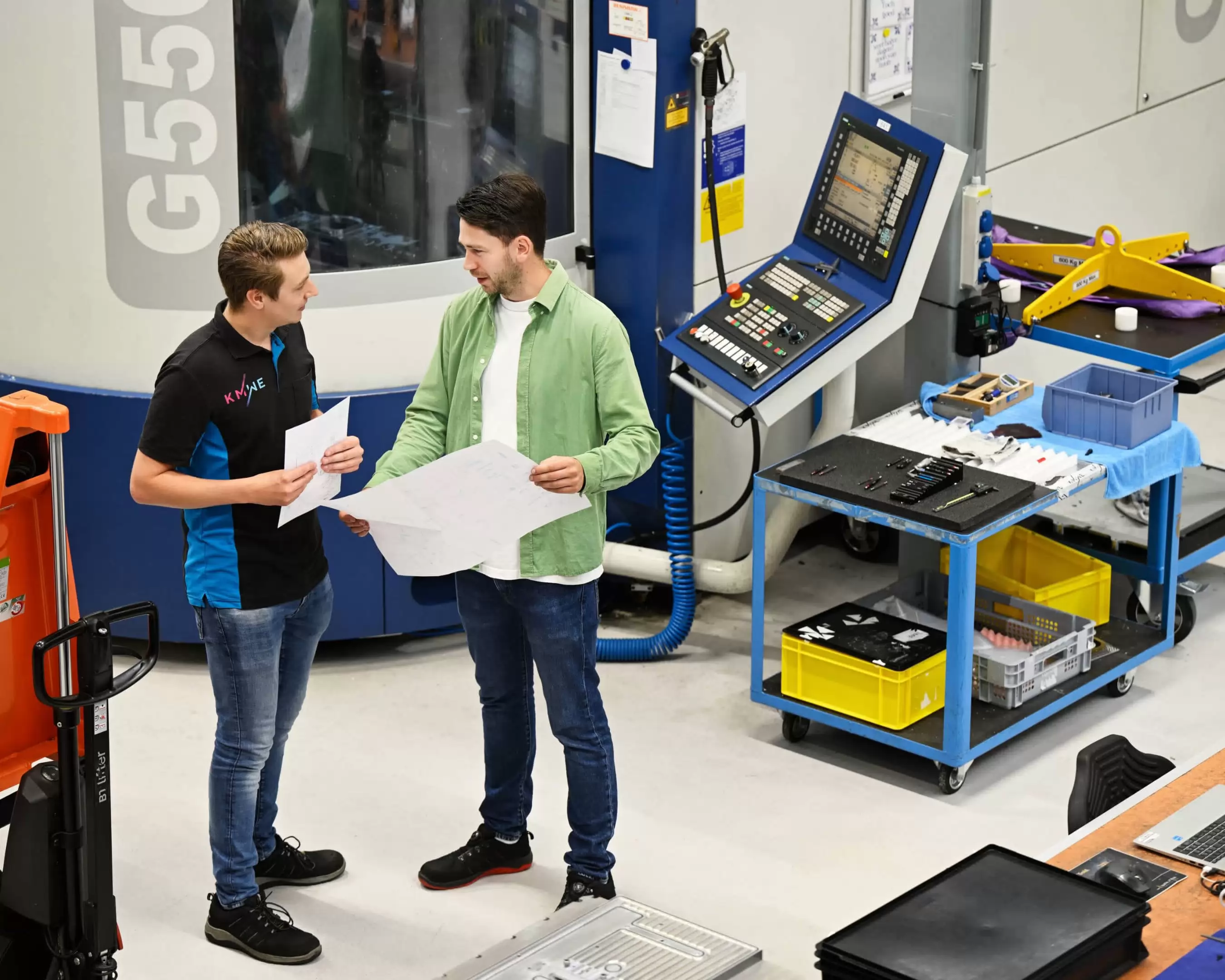
Programmes

Get a good impression of what your study programme will look like.
The part-time MSc in System Design at Fontys allows you to master system architecture, mechanics, and AI, preparing for roles in high-tech industries, all while balancing your professional commitments.

Enrol in the Fontys part-time Master System Design and accelerate your career while working. Focus on high-tech system design, gaining practical experience in the Brainport region. Partner with industry leaders like ASML, Philips, and VDL, enhance leadership abilities, and position yourself as a leader in innovative, global solutions.
From the start, you will choose a specialisation track to tailor your studies:
Each track comes with track-specific electives and learning goals, so while all students share core courses, your projects and assignments will reflect the focus of your chosen track. This approach ensures that by the end of the program, you have both the breadth of systems knowledge and the depth in your specialization.
For the academic year 2025/2026, the teaching day for first-year students has been scheduled for Wednesday from 9:00 a.m. to 5:00 p.m. For second-year students, classes will take place on Friday from 9:00 a.m. to 5:00 p.m.

In the first year of the Master System Design, all students follow four core modules that provide a comprehensive foundation in topics such as system design, mechanics, electronics, and artificial intelligence. These modules ensure a solid understanding of the principles needed to tackle complex high-tech systems.
The programme focuses on real technical challenges in high-tech environments, emphasizing design, measurement, realization, and testing. Through modeling, simulation, and advanced sensor and design techniques, you will learn to analyze and optimize complex systems.
While the first-year modules are shared across all students, your track choice subtly shapes the focus of your learning and projects. Students following the Systems Engineering track will encounter content that emphasizes system integration, control engineering, and the interplay between hardware and software, reflecting the multidisciplinary nature of large-scale systems. In contrast, the Precision Engineering track provides deeper attention to mechanical and mechatronic systems, including aspects such as materials, high-precision design, and advanced manufacturing techniques. Students in the Automotive Systems track will focus on the integration of energy and mobility technologies, exploring topics like battery systems and energy management. Their projects often address real-world challenges in the shift towards electric and sustainable transportation.
Across all tracks, you will gain the technical skills and professional competencies, such as leadership, collaboration, and communication, needed to work effectively in multidisciplinary teams, equipping you with the skills to enhance system stability, precision, and performance in dynamic and demanding settings.

Examples of courses:
System Design: Architecture & Engineering: You are mainly concerned with the technical aspects required to successfully run, manage, design and implement (large) complex high-tech systems.
Mechanics / Design principles: Physical effects make it difficult to achieve predictability and reproducibility at high process rates. You will learn to analyze systems and manage these effects.
Dynamics / Thermo Mechanics: You are able to change the structure of a system to make it less dependent on dynamic forces and thermal disturbances. You are able to find solutions to dilemmas in accuracy versus speed in the construction of high-technology systems.
Data & Image Processing: You will gain an understanding of the way Neural Networks work. Neural Networks is covered within the domain of Artificial Intelligence.

Examples of courses:
Modelling & Simulation: This course focuses on modelling techniques to optimize designs of high-precision dynamical systems based on simulation results.
Measurement systems, Sensors & Actuators: It is about designing a measurement system for high precision motion systems. The sensors data after being processed drive the active elements. The accuracy of this measurement data and the choice of the active elements and sensors define the capability and the performance of the whole system.
Innovation Engineering, Research Methods: Innovation perception, creativity, patent development and research methods enhances your conceptual skills.
Control Engineering: You can tune the structure of a system to ensure robust stability and performance by including knowledge of disturbances such as dynamic forces.

In your third year, you'll complete a final project at your current workplace, integrating your professional experience into your Master's thesis. Enhance leadership, innovation, and professional skills essential for system design engineers. You will focus on product innovation, developing a business plan & strategy roadmapping and decision making, project communication.
With guidance from industry experts, tackle real-world challenges and secure your role as a T-shaped professional in the tech industry.

Wondering what's to come after applying for this programme? Go over the entire admission process.
Please note! If you wish to apply for housing through Fontys, the housing application deadline is June 15.
You can sign up for online and live events throughout the academic year.
We are happy to help.